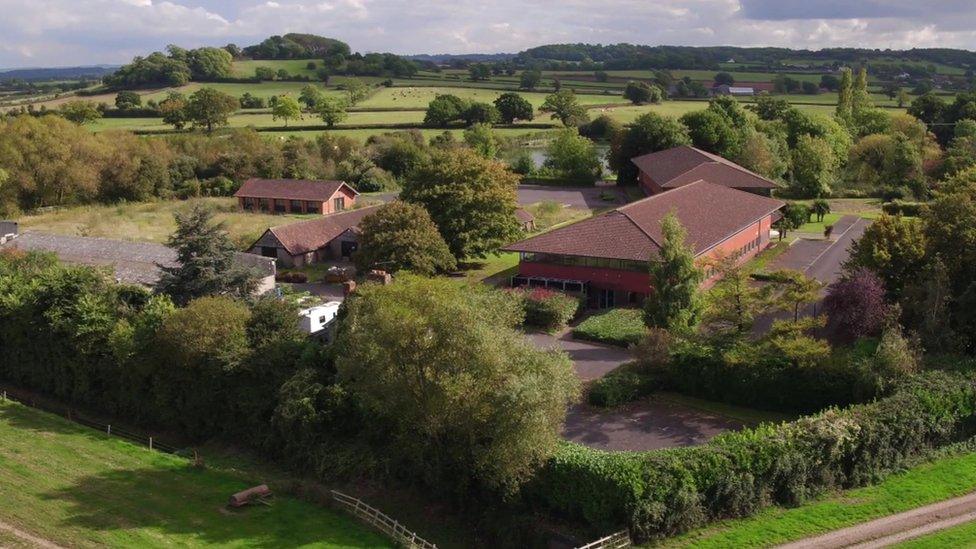Charities warn of child migrant 'chaos'
- Published

The complex has been earmarked to house and teach migrant children
A children's charity has said the Home Office strategy for dealing with unaccompanied child migrants is "chaotic".
The Edlumino charity has been part of a group of charities in talks with the Home Office to set up a specialist boarding school to house and educate unaccompanied migrant children on a site near the Severn Estuary.
The Home Office says it is continuing to explore a range of suitable accommodation throughout the UK for refugees and asylum seekers
For more than six months the Whale Wharf complex close to the Severn Bridge in Gloucestershire has been earmarked as a potential centre to house, educate and prepare migrant children for their new life in the UK.
Need for 'coherent' plan
However the project seems to have stalled with campaigners saying officials appear to have no coherent strategy for dealing with children arriving in the country.
Two weeks ago the charities were asked how long it would take to have the centre fully operational.
But the Home Office request was wide ranging. One email asked if the accommodation could house between 20 and 150 children for anything between a few hours to several months.
The charities were offered £100 per day per child to run the operation - which is a similar rate to foster care.
Rory Fox from the Edlumino charity, who set up a temporary school for migrant children in the "Jungle" in Calais, said there needed to be clarification over preparations that were needed.
"Without a clear and coherent plan, and without a commitment to a specific timescale and number, then nobody is able to put together any kind of facility that will work, and this is why it's going round and round in circles.
"What it needs is someone senior to get a grip of the situation."
The centre would house unaccompanied children who have no relatives in the UK who can care for them.
However there is a legal problem for such children.
They are usually housed with local authorities and put in the care of foster families - with the council acting as legal guardian.
Because of the numbers involved and shortage of suitable foster carers, at least one children's charity has been approached to become legal guardian of scores of children.
The BBC understands this has never been tried before and may involve a change in the law.